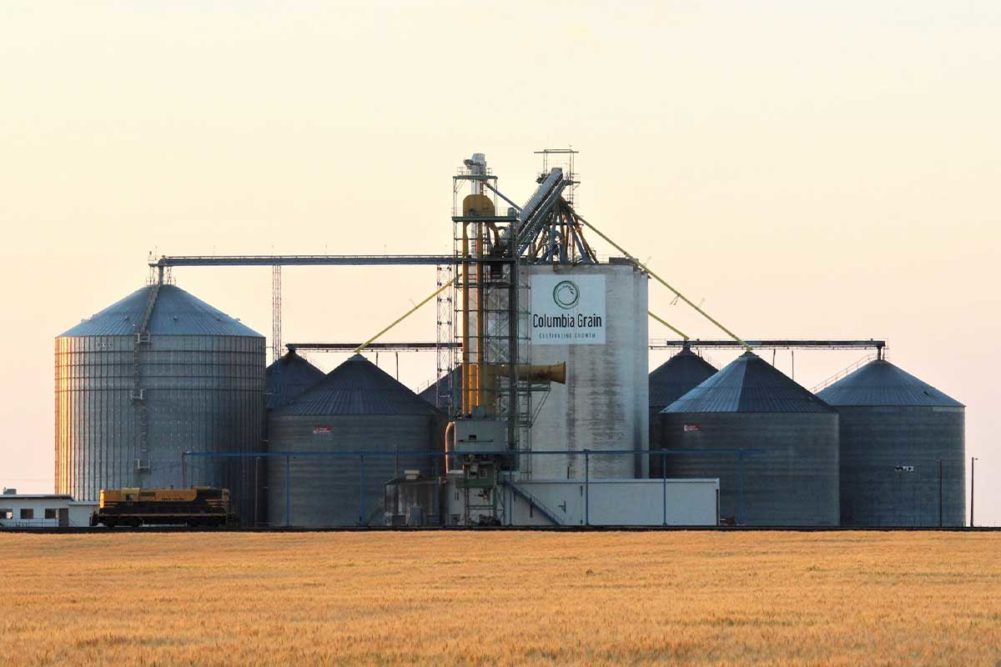PORTLAND, ORE. — Although its supply chain is compromised, Columbia Grain International (CGI) is working with its producer network to move grains and pulses as fast as possible, a process made more difficult due to transportation bottlenecks, said Jeff Van Pevenage, president and chief executive officer of CGI.
“Our supply chain is compromised, and it’s affected both sides of the equation,” Mr. Van Pevenage said. “Repair, maintenance and expansion of our facilities have been challenged by slow supply chain delivery of steel, conveyors, legs, motors and more. CGI steadily attempts to grow our business, but in times like today, the challenges are accelerated. Several projects are delayed due to the lack of equipment available on a timely basis, and this results in fewer options for grain movement, storage and segregation through our system.”
Founded in 1978, CGI has grown to become a leader in the origination, processing, logistics and distribution of bulk grains, pulses, edible beans, oilseeds and organics for US domestic and worldwide export markets. But over the past 12 to 18 months, the coronavirus pandemic has caused challenges for the Portland-based company. Transportation has become the biggest obstacle, Mr. Van Pevenage said.
“When the transportation supply chain is compromised, it drastically reduces our industry’s ability to move grain and pulses,” he said. “When transportation is slowed, it reduces and delays our producer’s ability to market their products and receive revenue to pay off their operating loans, suppliers and landlords. It is a huge hit to our system as volume is reduced, and whether people like it or not, we survive on volume times margin. We want to move as much as we possibly can.”
He said CGI has benefited from its determination to negotiate with transportation companies for alternatives and lower rates, which support producers, the industry and transportation companies. The company’s grain moves primarily though the Seattle and Portland ports via truck, barge and BNSF rail from Washington, Idaho, Montana and North Dakota. Once at the port, the grain moves via bulk vessel or containers. As transportation bottlenecks have developed, CGI has turned to investments in infrastructure. The strategy has paid off, allowing CGI to diversify its transportation options and even expand its volume, the company said.
Specific actions have included the construction of a building container terminal in Plentywood, Mont. The new terminal has allowed CGI to load containers directly from the plant to decrease the amount of time needed to transport product to the end-user. The containers then move through Canadian ports, increasing their options and opening more competitive rate structures, CGI said. Additionally, CGI said its facilities in Ross, ND; Walhalla, Wash.; and Merrifield, ND, now are directly loading containers, in volume.
“Our product moves north and south, east and west, but the biggest advantage is that it moves faster and at lower rates to our destinations,” Mr. Van Pevenage said. “Our investments and innovative merchandisers allowed these shipping lanes to open and it’s creating more markets for our producers.”
He added, “Our end goal is to nourish life from our local farmers to the world, and we are working with our transportation companies to ensure that happens in these times of supply chain disruption.”





